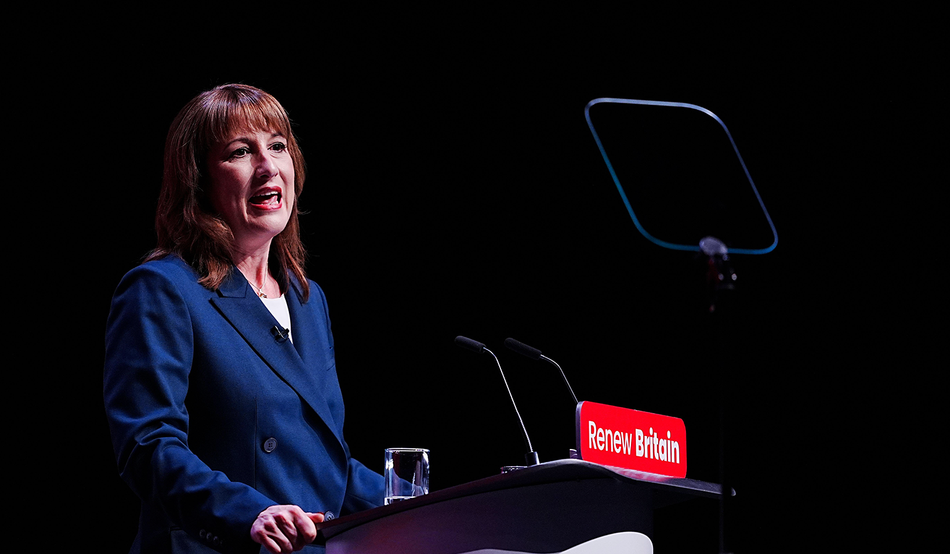Maybe Britain elected a Labour government after all. The chancellor’s budget on Wednesday was, by a distance, the least apologetic moment in the life of the Starmer-Reeves project to date. The duo who had, at different times, vowed not to tax “working people”, not to tax wealth and not to reach for “the tax lever” at all, suddenly forgot all of their taboos.
Indeed, early on in her speech Reeves offered a striking retrospective review of her own budget last year: “I raised taxes on business and the wealthiest.” As indeed she did, although I don’t remember her using any words that blunt 12 months ago. This time, she sounded unembarrassed about asking everyone to contribute more, and asking the rich to contribute the most.
A slice of what was raised was earmarked for abolishing the notorious two-child limit in welfare benefits. After a long year in Number 11 (and another before that in opposition) of shrugging that there was simply no prospect of finding money for this, Reeves now relished swinging an axe at George Osborne’s great poverty ratchet. As recently as September there were whispers from the Treasury about restricting the gains to kids from the right sorts of homes—where parents worked, or didn’t have more than four children. When the big day came, however, there was no triangulation, simply the clear and principled argument that all children need to be provided for.
The Daily Mail reacted as Reeves must have known it would, its instant online headline screaming: “The Budget for benefits street: Reeves funds eye-watering welfare splurge by taxing hard-working Brits… alongside new levies on properties, pensions and cars”. The reams of charts and tables that will trickle out from thinktanks in the aftermath will confirm the chancellor’s reinvention as Robin Hood.
After all those long years chasing “wealth creators” on the smoked salmon circuit, how are we to make sense of the arrival of this change? The knee-jerk interpretation on the right will be that the mask has just slipped, that the pro-business stuff was only ever a soothing pose for the voters, to get through the election, get entrenched in power and then unfold secret socialist plans.
But this doesn’t wash when you consider the number of times that Reeves has been prepared to stick her neck out in an “unpopulist” direction: turning against the bankers’ bonus cap; sacking the head of the competition regulator who was going too hard on big business; weighing in on the side of sneaky loan providers against the car-buying consumers who were taking them to court; even allowing stories to run that suggested her drive to slash City red tape could dilute protections against home repossessions.
While Reeves has always pursued some muscular social-democratic policies—funding the NHS, borrowing for infrastructure, charging VAT on private school fees—everything she has done prior to this week suggests that she was sincerely committed to retaining some allies among rich individuals and institutions. After all, insofar as she has spelled out a vision for growth, the spur was private investment.
The only way to make sense of this week’s shift to the left is as a recalibration to a shifting political landscape. First and most obviously, Starmer’s stern but brittle authority over his troops has snapped. As recently as July, MPs were suspended despite having successfully persuading the government to drop its disability benefit cuts. Four months on, with mutiny breaking into the open, attempting such a show of force against the left is inconceivable. The imperative for the party’s ruling clique is survival, and the budget has certainly helped. Clive Lewis, a Labour MP who has been publicly calling for Starmer to go, immediately declared himself “over the moon” after the budget.
At the same time, Labour’s political operation seems to have finally understood that the government has to worry about losses on its left just as much as its right. Until very recently, Starmer’s centrist project has been predicated on the assumption that progressive voters can be taken for granted because they “have nowhere else to go.” But after a spectacular byelection win by Plaid Cymru in Wales and with Zack Polanski’s Greens storming forward in many polls, this is now demonstrably false.
Polanski’s unrelenting proposal of a wealth tax as the answer to every social evil is not seriously convincing on the arithmetic, but it has struck a real political chord. In the Commons, the Chancellor used the words “wealth” and “wealthiest” six times on Wednesday—and in every case was talking about asking the wealthy to pay more, or curbing inequality. Listening to that, I began to wonder if we’re beginning something akin to what Nigel Farage has achieved on immigration, by dragging the Overton window endlessly to the right, and on that subject the drift continues. But on the economy, might we now be what seeing what happens when the likes of Polanski give it a shove from the other side?
More subtly, in the newly fractured electoral landscape, the principal incentive for politicians is simply to rally their base, rather than to seek converts from across the divide. Starmer’s government has shown few signs of understanding this until very recently, but perhaps it is now catching up.
As things stand, there looks to be no chance of any political force securing the 40 percent vote share that was traditionally seen as the benchmark for a solid victory. With its traditional core crumbling, Labour would be delighted to bounce back to the record low of 28 percent it scored in its Waterloo moment in 1983. Moreover, if the party could only do that, it would have a real chance of clinging on to power.
This is the real backdrop to the reinvention of Rachel Reeves. And if I’m reading things right, the political logic that it engenders could mean that the days of budgets that try to please everybody could be gone for good.













